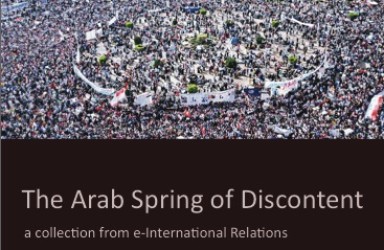R2P, Libya and International Politics as the Struggle for Competing Normative Architectures
The UN was neither designed nor expected to be a pacifist organisation. Its origins lie in the anti-Nazi wartime military alliance amongst Britain, the United States and the Soviet Union. The all-powerful UN Security Council is the world’s duly, and only, sworn in sheriff for enforcing international law and order.
Transatlantic Relations: A Case for Optimism
In the coming weeks as the Libya drama comes to a climax and as the debate on Afghanistan sharpens on what happens next, the European nations will have to make a decision on what kind of transatlantic relationship they want, or need, or value. The option of grumbling dependency is over, an era of shared responsibility and mutual contribution is about to dawn.
Why Libya is Not (Yet) Kosovo: The Time for a Ground Option has Arrived
Unfortunately, the events of the Libyan conflict have thus far only reinforced the lesson that there is no such thing as a “cheap” military solution to a political problem. To continue to operate under this seductive myth will only compound the error. By breaking the Libyan regime, the international community has bought its problems.
Review – The Good War: NATO and the Liberal Conscience in Afghanistan
One of the challenges facing anyone who wishes to write on the war in Afghanistan is to squeeze this fiendishly difficult topic into an appropriate framework. It is not easy to find an approach that avoids oversimplifying the issues, or bamboozling the reader into boredom, confusion, deep cynicism, or a combination of all three.
Gates’ Parting Shot
What NATO has demonstrated in the past 20 years is its utility as facilitator of action by its members, deployed on the basis of what are seen as the compelling strategic and political judgements of the time. Despite this, US Secretary of Defence, Robert Gates, has recently warned of a dismal future for the transatlantic alliance. Yet we should not assume that the Alliance is condemned to possible irrelevance.
Edited Collection – The Arab Spring of Discontent
This collection of articles offers insightful and diverse perspectives on the Arab uprisings, and expands to consider political unrest outside the Arab world.
END NATO
When Europe lay devastated after WWII and seemed menaced by the Soviet Union, a cross Atlantic military alliance was needed to preserve European freedom. Through a patchwork of military commands and an influx of American troops, a protective wall of security was created within which European recovery and democratization could take place. However, today, NATO is irrelevant and needs a respectful termination.
The Strategy Behind Operation Ellamy
Gaddafi has long had form as a murderer. Neither Britain nor America have forgotten his role in the 1988 Lockerbie bombing. With intervention, the West sends a clear message to all Arabs and those who rule over them whether despots or occupying states. To stand with those who want democracy can only ever be the right thing to do. As Tony Blair has said, the case for western intervention is as strong now as it has ever been.
Mistakes and Lessons from the Afghan War
NATO’s lack of success to date in Afghanistan can be attributed to four factors: the reluctance to make difficult choices in state-building, the failure to confront Islam, the failure to confront Kabul, and the influence of China. While NATO may still eventually win, it will have been at tremendous cost and time, and Afghanistan will have posed a great opportunity cost for other NATO objectives.
The Western Balkans: The Ultimate Test for the European Union
Despised by Bismarck as ’not worth the life of a single German solider’’ and described by Churchill as ‘having too much history to consume’’, the region of the Western Balkans is returning to the agenda. The EU and the USA must step in and show that they are up to this ultimate test of bringing the last remaining non-EU island into the orbit of the Union and NATO.




